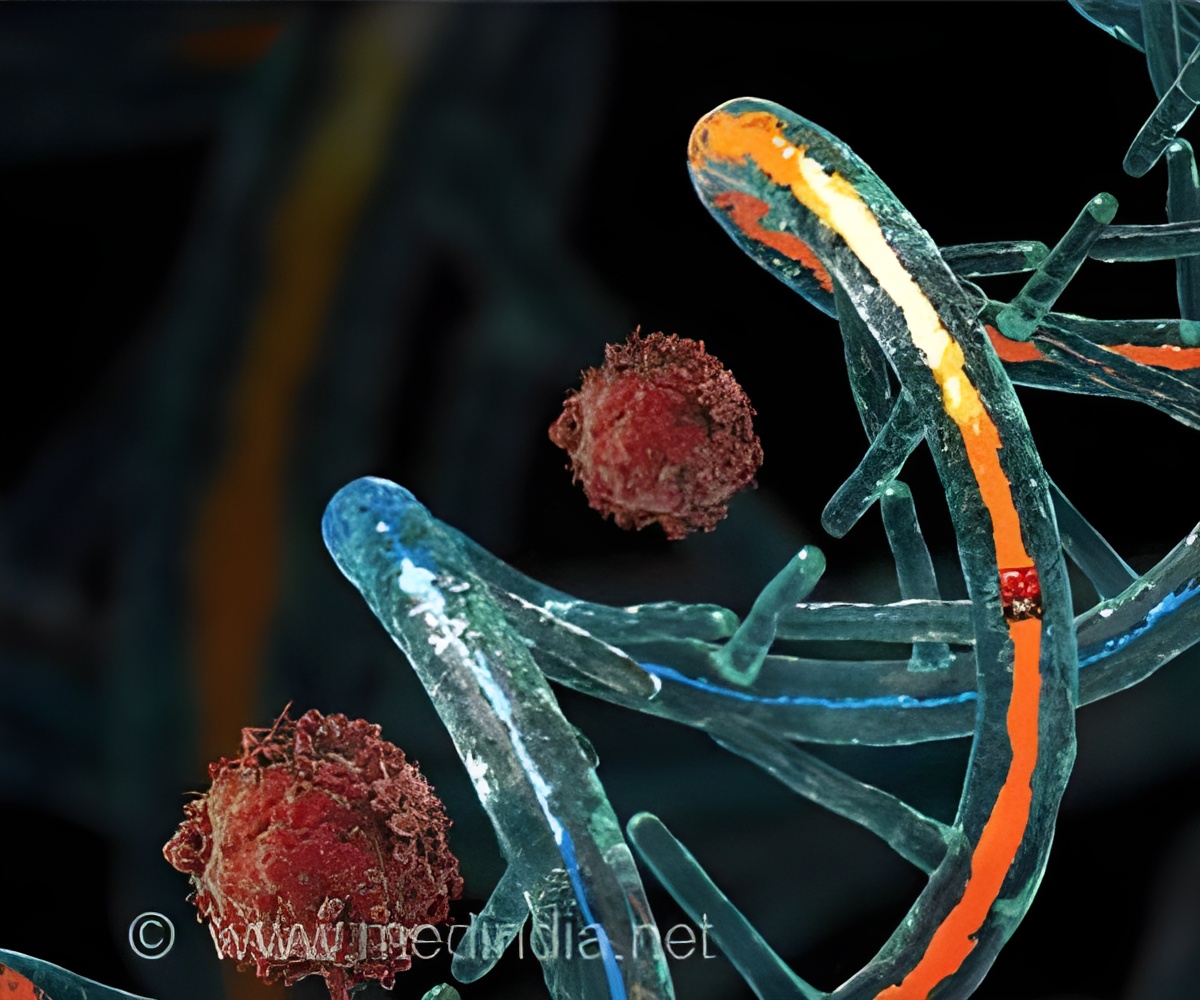
‘Olaparib and capivasertib have the potential to work well as a combination treatment and could improve outcomes for some patients with drug-resistant cancer.’
Read More..Tweet it Now
The early-stage trial, led by a team at The Institute of Cancer Research, London, and The Royal Marsden NHS Foundation Trust, found that the drug combination was safe, successfully hit its targets, and was effective against a variety of advanced cancers. The study was published in the prestigious journal Cancer Discovery.Read More..
The Institute of Cancer Research (ICR) played a key role in pioneering both of the two precision medicines in the combination - discovering how to genetically target olaparib, and collaborating to create a precursor to capivasertib before the drug's ultimate formulation by AstraZeneca.
In the phase I trial, researchers gave 64 patients with advanced solid tumours - including those with breast cancer, ovarian cancer and prostate cancers -combinations of olaparib and capivasertib.
The combination was well tolerated, and 25 of the 56 patients whose response could be assessed - or 45 per cent - benefited from treatment, with their tumours either shrinking or stopping growing. Some of these patients had previously stopped responding to chemotherapy and other targeted treatments as their cancers became drug resistant.
The trial was funded by the pharmaceutical company AstraZeneca, under the auspices of the Cancer Research UK Experimental Cancer Medicine Centre Combinations Alliance.
Advertisement
"Our study establishes the potential of a combination of two precision medicines for patients whose tumours have stopped responding to existing drugs. The combination of olaparib and capivasertib works by attacking two fundamental weaknesses in cancer, and could potentially be used to treat patients with several common tumours. I look forward to seeing the possible benefit of the combination tested in later-stage trials."
Advertisement
"This new clinical trial is a terrific example of how we can now translate scientific discoveries about the biology of cancer cells into innovative new cancer treatments with real benefits for patients."
"It's very exciting to see two drugs pioneered thanks to the ICR's research now being used together in patients, with the real possibility that they could offer an urgently needed new treatment option for patients whose cancers have become resistant to current treatments."
Source-Eurekalert







